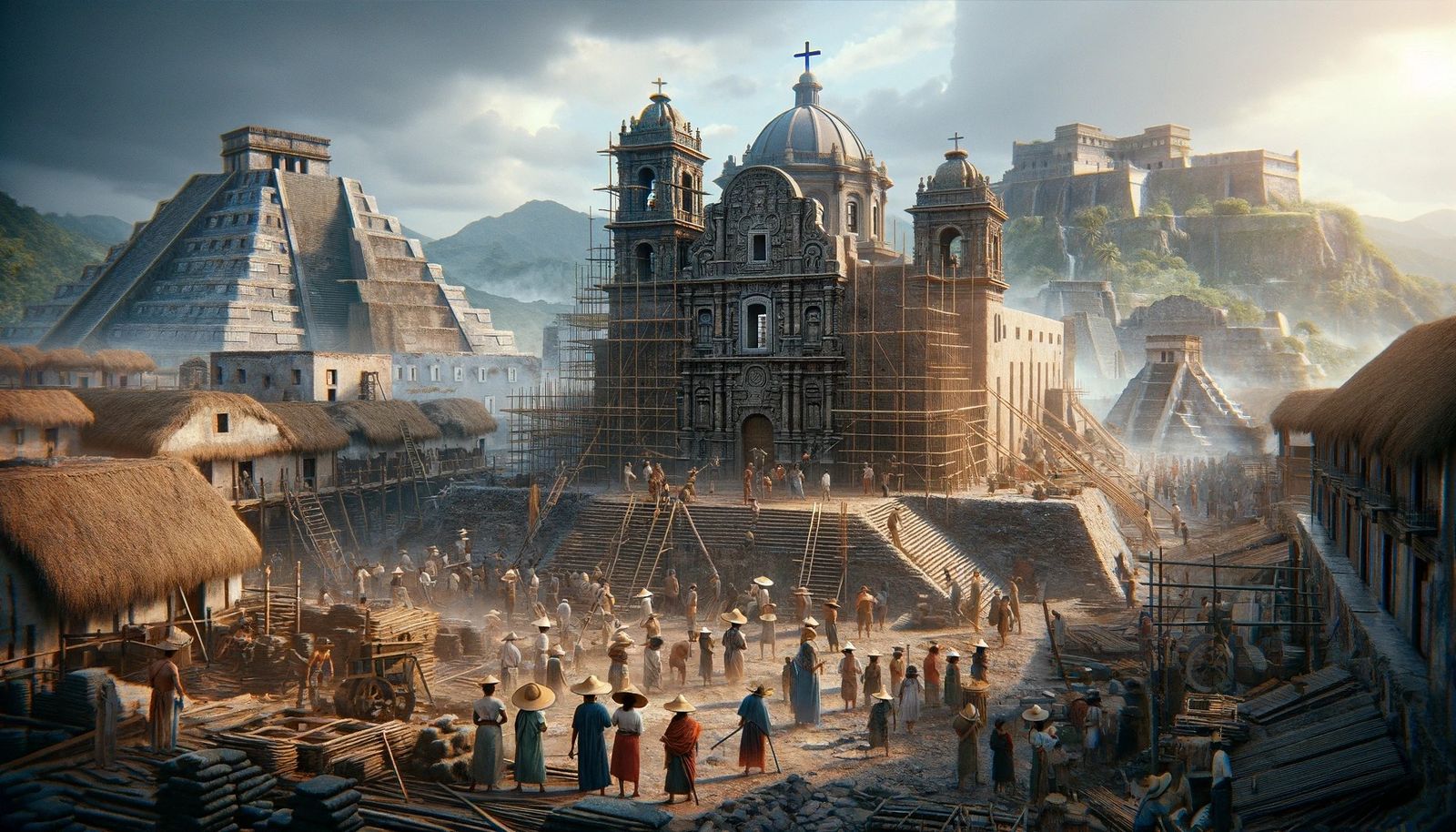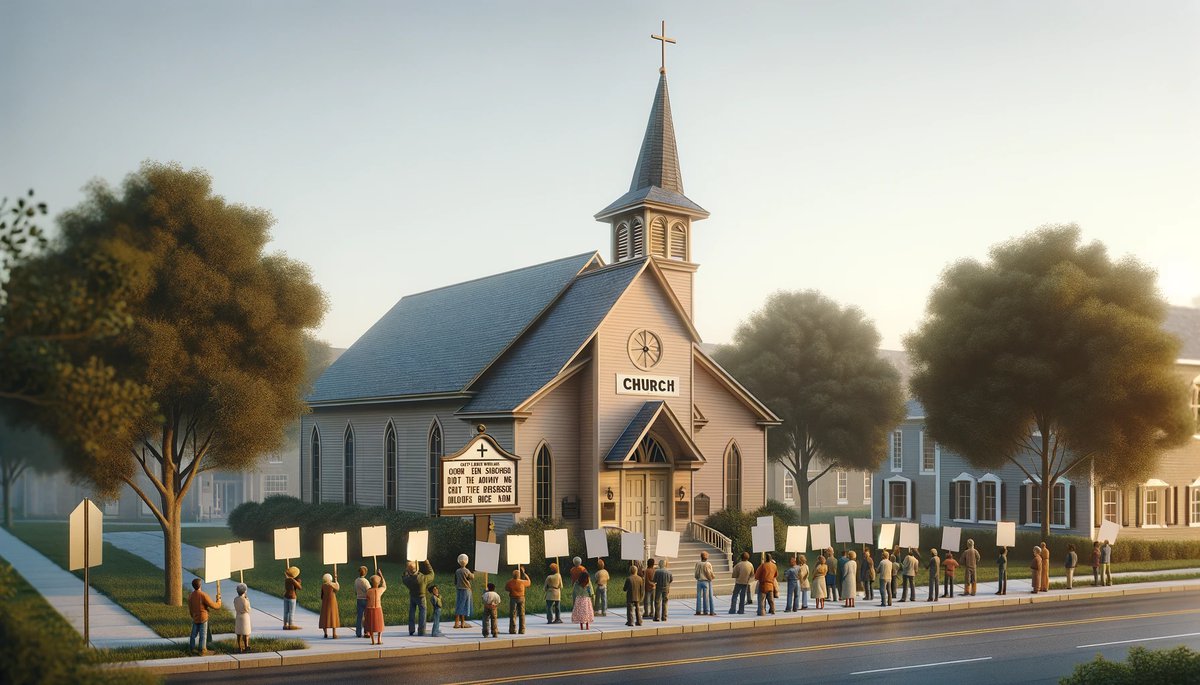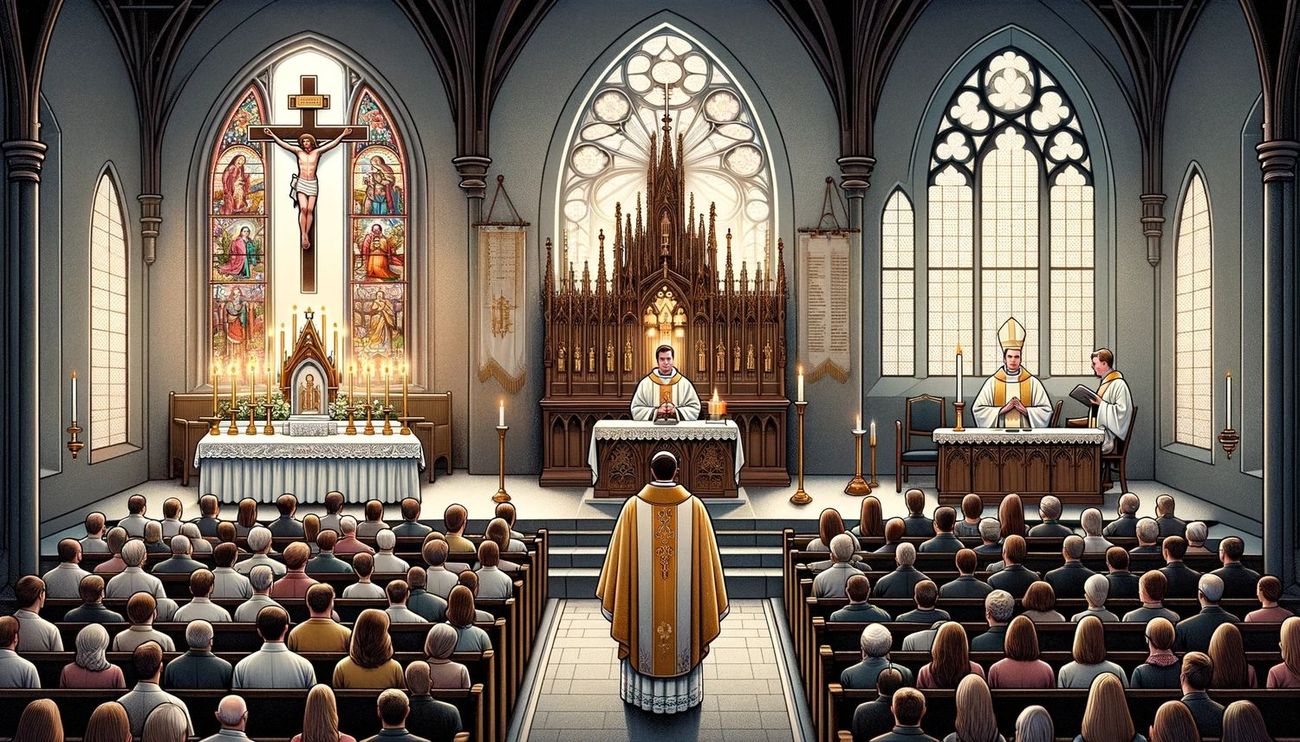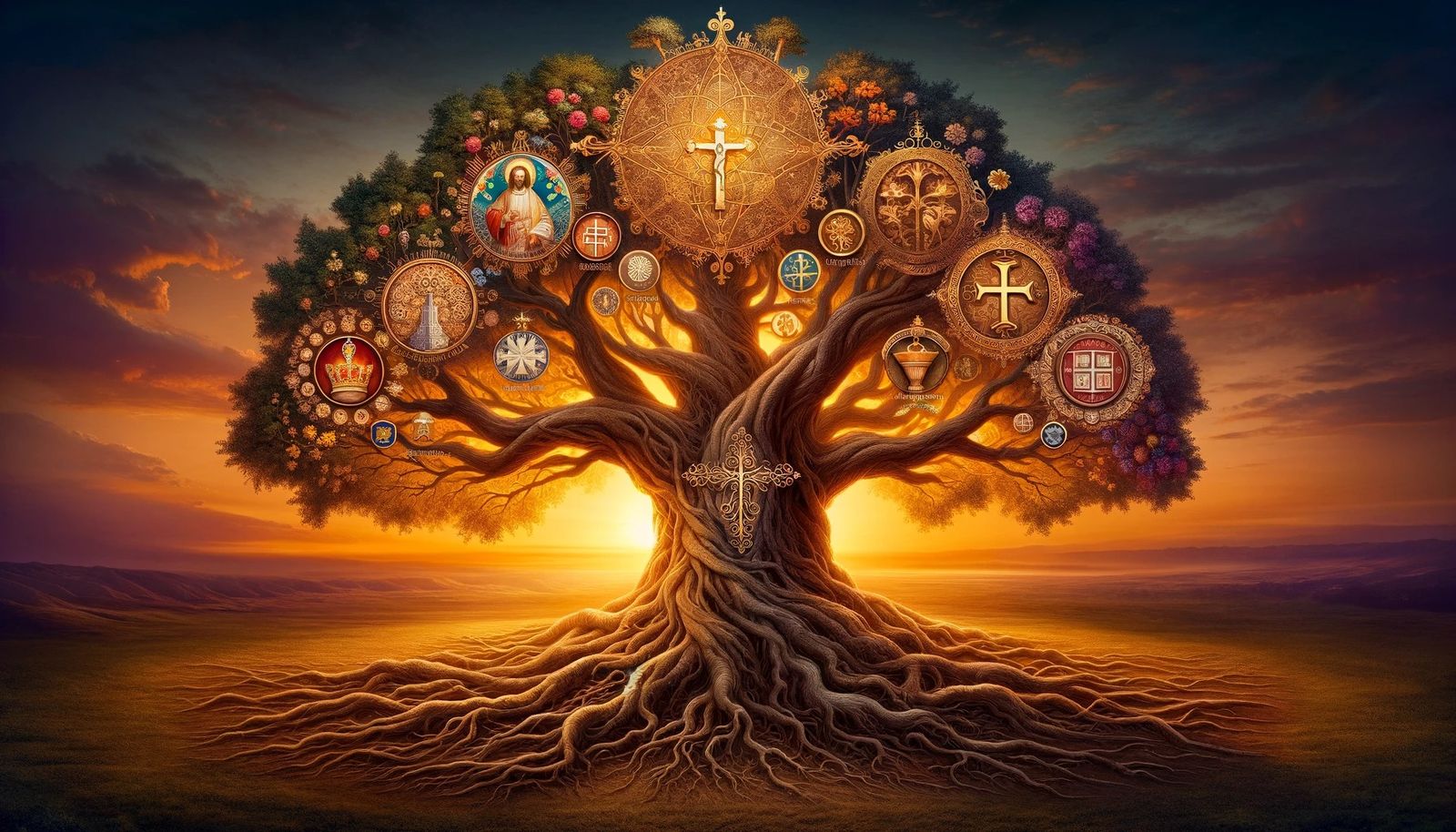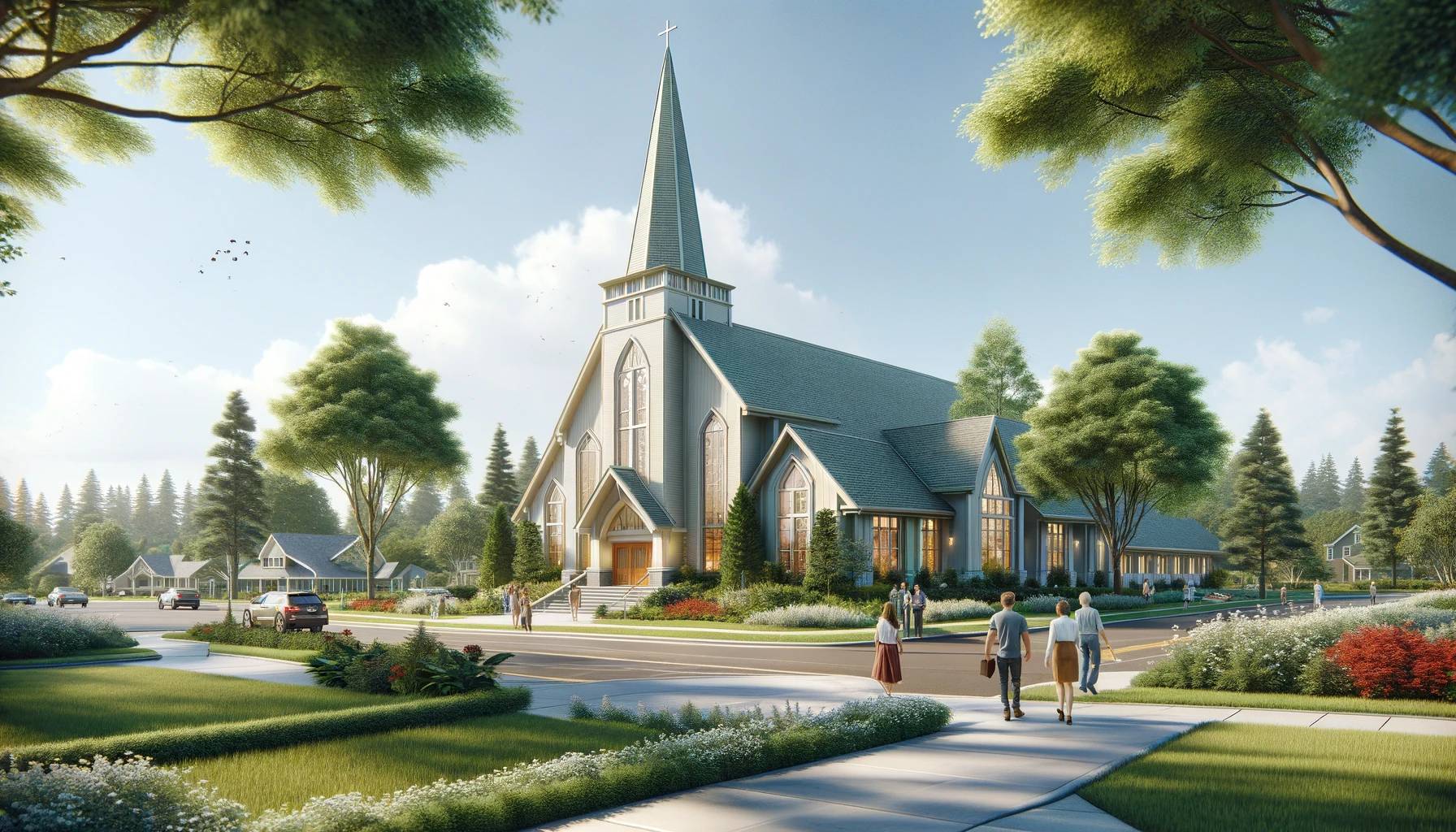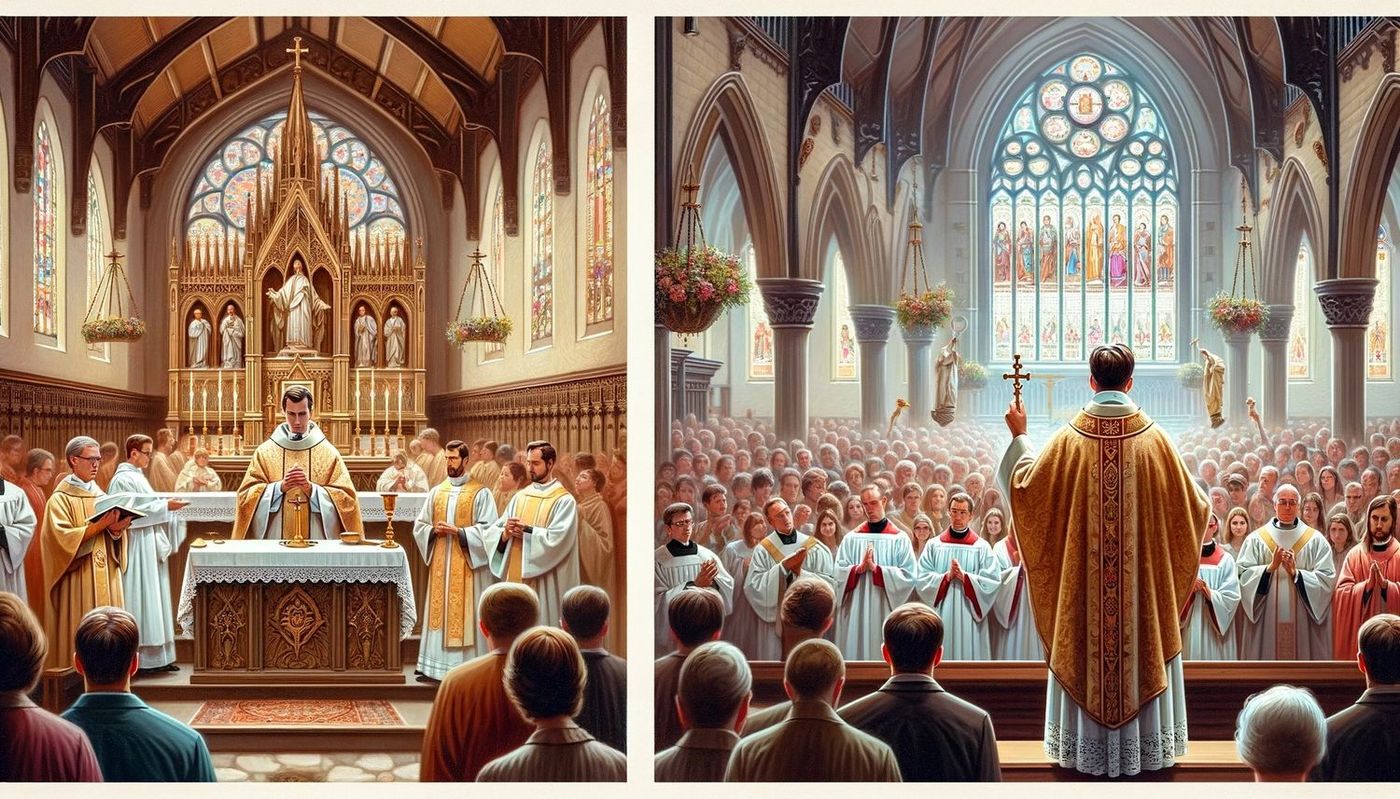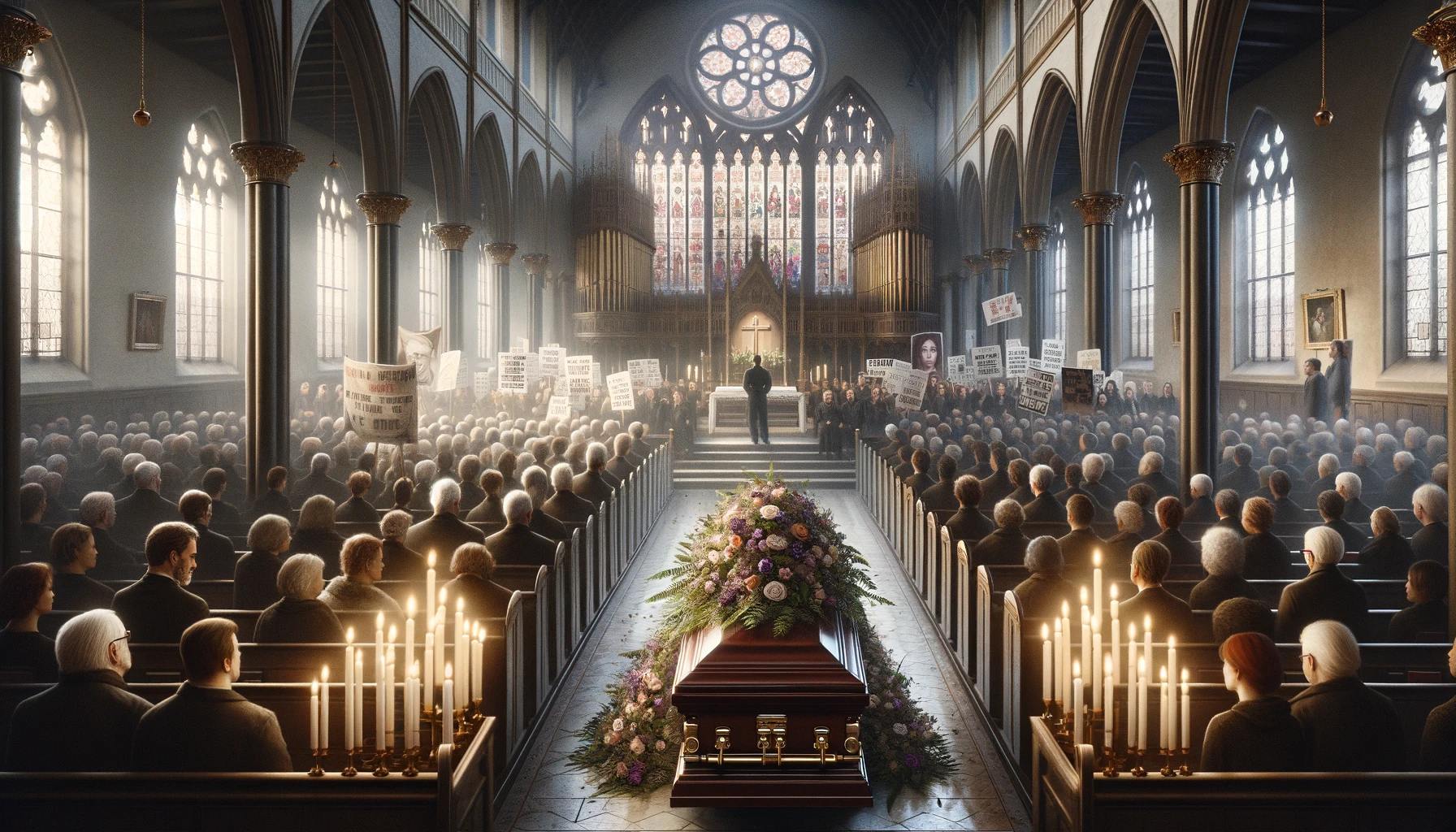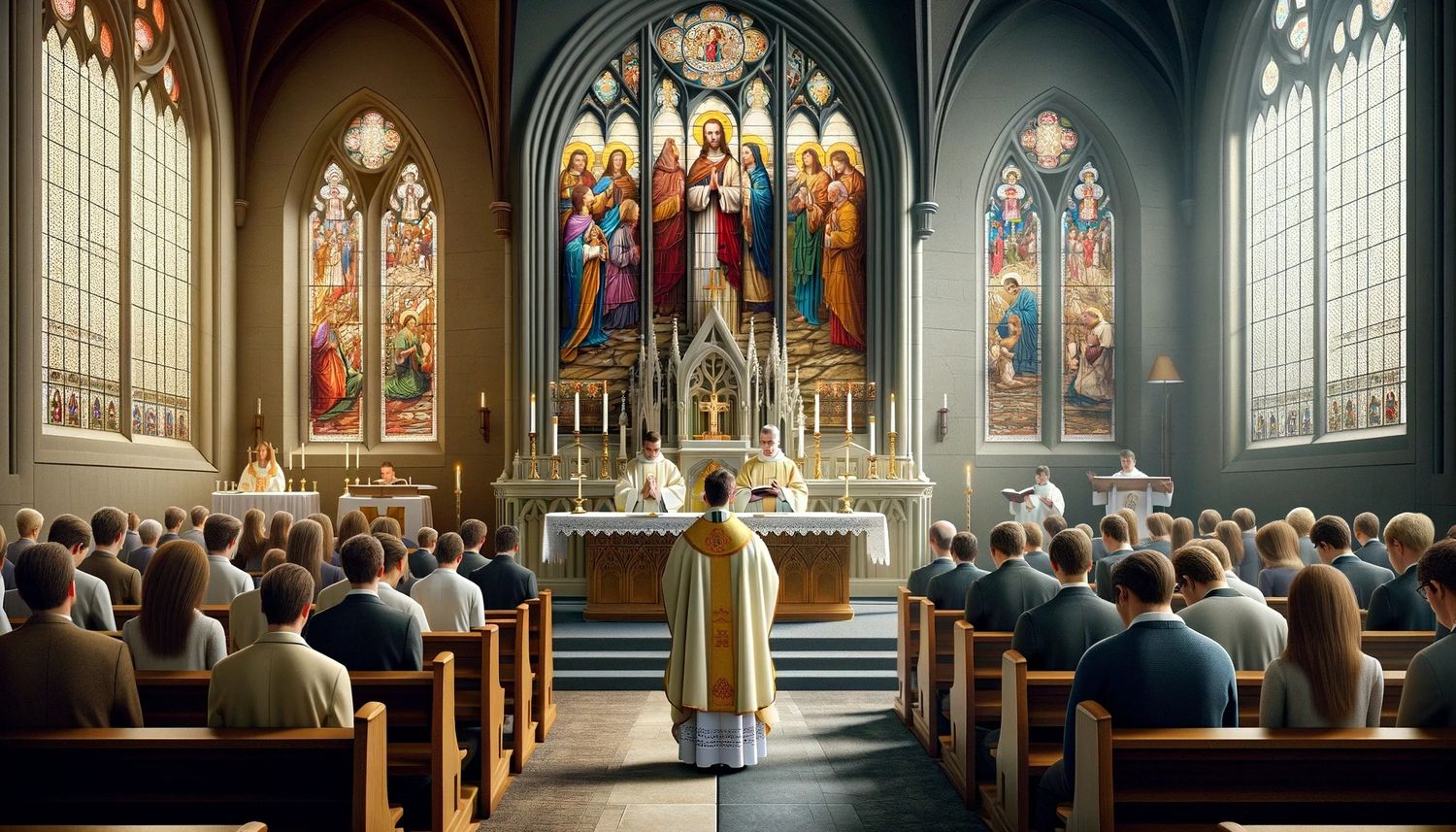Home>Theology and Spirituality>Why Did The Protestant Reformation Occur? To What Extent Are Catholicism And Protestantism Different?
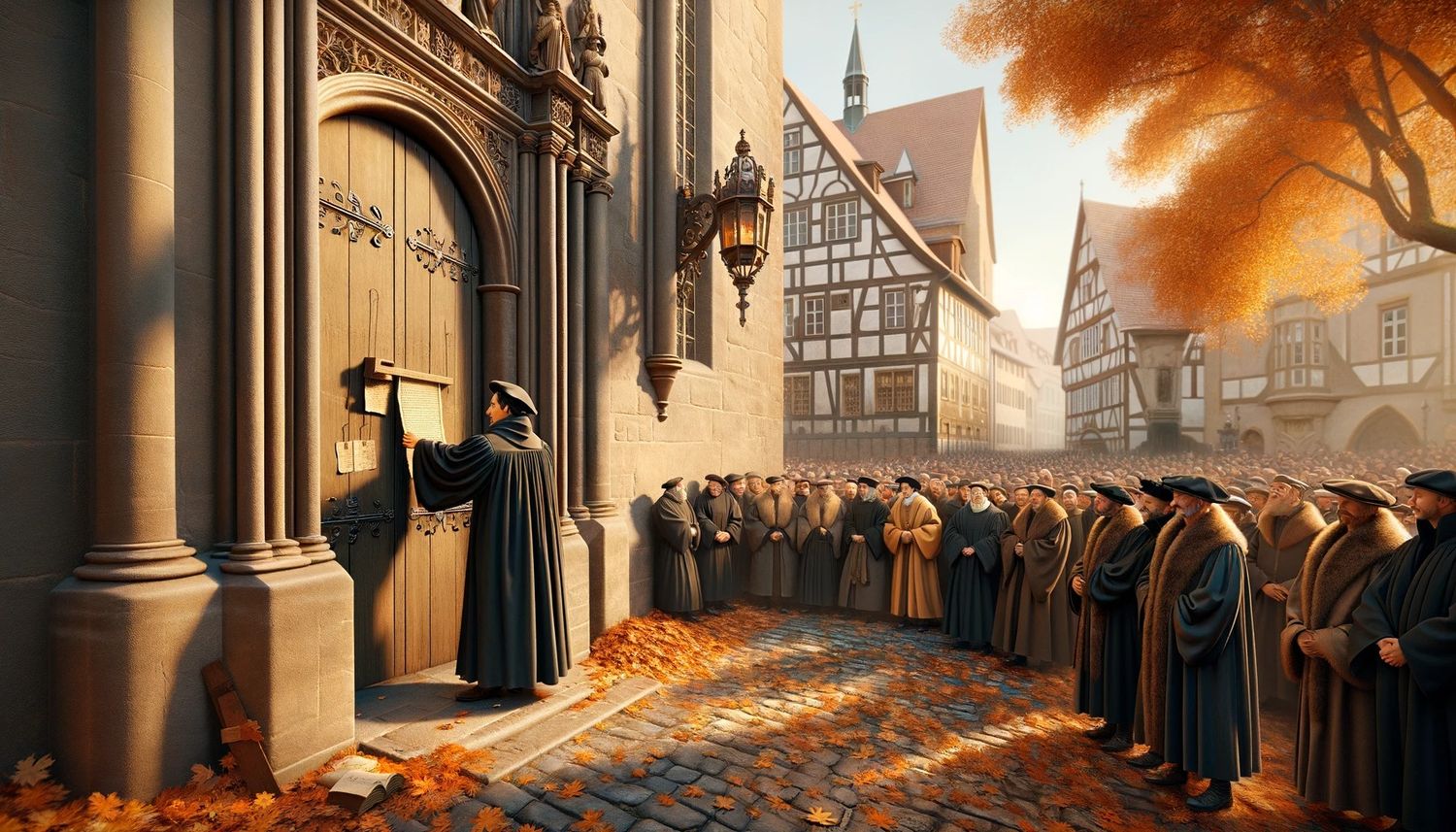

Theology and Spirituality
Why Did The Protestant Reformation Occur? To What Extent Are Catholicism And Protestantism Different?
Published: February 18, 2024
Jason DeRose, Managing Editor at Christian.net, uses his expertise in religion and journalism to deepen understanding of faith's societal impacts. His editorial leadership, coupled with a strong academic background, enriches the platform’s diverse content, earning him recognition in both journalism and religious circles.
Explore the causes of the Protestant Reformation and the differences between Catholicism and Protestantism in this insightful theology and spirituality discussion.
(Many of the links in this article redirect to a specific reviewed product. Your purchase of these products through affiliate links helps to generate commission for Christian.net, at no extra cost. Learn more)
Table of Contents
Introduction
The Protestant Reformation stands as a pivotal moment in the history of Christianity, marking a significant divergence from the established traditions of the Catholic Church. This movement, which unfolded in the 16th century, sparked profound changes in religious, social, and political landscapes, shaping the course of Western civilization. Understanding the reasons behind the Reformation and the subsequent differences between Catholicism and Protestantism is crucial for comprehending the complexities of modern Christianity.
The Reformation was a period of intense upheaval, characterized by fervent debates, theological disputes, and the emergence of new religious denominations. It challenged the authority of the Catholic Church and ultimately led to the splintering of Western Christendom. The repercussions of this schism continue to reverberate through contemporary society, influencing religious practices, cultural norms, and individual worldviews.
As we delve into the historical context, causes, key figures, and enduring impact of the Protestant Reformation, we will unravel the intricate tapestry of events that shaped the religious landscape of Europe and beyond. Moreover, by examining the differences and similarities between Catholicism and Protestantism, we can gain insight into the diverse expressions of Christian faith and the theological underpinnings that define these traditions.
The Protestant Reformation remains a compelling subject of study, offering a window into the complexities of religious reform, the dynamics of power and authority, and the enduring quest for spiritual truth. By exploring the multifaceted dimensions of this transformative era, we can appreciate the enduring legacy of the Reformation and its profound influence on the evolution of Christianity.
Historical Background of the Protestant Reformation
The roots of the Protestant Reformation can be traced back to the 16th century in Europe, a time marked by profound social, political, and religious upheaval. The Catholic Church, with its centralized authority in Rome, wielded immense power and influence over the spiritual and temporal affairs of Western Christendom. However, this dominance was not without its controversies and criticisms.
The Church's practices, including the sale of indulgences, the accumulation of wealth, and the perceived moral laxity among clergy, had sparked discontent among many devout Christians. Additionally, the monopoly of religious interpretation and the use of Latin in church services created a disconnect between the clergy and the common people, leading to a growing sense of alienation and disillusionment.
Amidst this backdrop, the Renaissance had ushered in a renewed interest in classical learning, humanism, and critical thinking. The printing press, a revolutionary invention of the time, facilitated the dissemination of ideas and information on an unprecedented scale. These intellectual and technological advancements set the stage for a climate of questioning, exploration, and the challenging of established norms.
It was within this context that the Protestant Reformation took root. The movement was ignited by the actions of Martin Luther, a German monk and theologian, who, in 1517, famously nailed his 95 Theses to the door of the Castle Church in Wittenberg. This bold act of defiance was a direct response to the Church's sale of indulgences and served as a catalyst for widespread debate and dissent.
Luther's theological challenge to the authority of the Church, coupled with his translation of the Bible into the vernacular German language, empowered individuals to engage directly with the scriptures and form their own interpretations. This shift from reliance on ecclesiastical hierarchy to personal engagement with religious texts was a seismic departure from established tradition and set the stage for a broader reevaluation of Christian doctrine and practice.
The Protestant Reformation, thus, emerged as a multifaceted phenomenon, encompassing theological, social, and political dimensions. It sparked a wave of religious reform movements across Europe, led by influential figures such as John Calvin, Huldrych Zwingli, and King Henry VIII in England. These reformers sought to address perceived corruptions within the Church and to articulate alternative visions of Christian faith and worship.
The historical background of the Protestant Reformation, therefore, reflects a complex interplay of religious, cultural, and intellectual forces that reshaped the religious landscape of Europe and beyond. It set in motion a series of events that would profoundly impact the course of Christianity and leave an indelible mark on the trajectory of Western civilization.
Causes of the Protestant Reformation
The Protestant Reformation was propelled by a confluence of factors that collectively undermined the authority of the Catholic Church and fueled a widespread desire for religious reform. These causes, rooted in theological, social, and political dynamics, coalesced to ignite a movement that forever altered the course of Christianity.
-
Corruption and Indulgences: The widespread perception of corruption within the Church, exemplified by the sale of indulgences, eroded the moral credibility of the clergy and the papacy. The practice of offering indulgences as a means of obtaining remission for sins or shortening one's time in purgatory had become increasingly commercialized, leading to public outrage and moral indignation.
-
Challenges to Papal Authority: The centralized authority of the papacy, coupled with its political entanglements and the exercise of temporal power, drew criticism from those who sought a return to the spiritual primacy of the Church. The notion of papal infallibility and the absolute authority of the pope were called into question, paving the way for alternative interpretations of Christian governance and ecclesiastical structure.
-
Emergence of Humanism and Critical Thinking: The Renaissance, characterized by a revival of classical learning and humanistic ideals, fostered a climate of intellectual inquiry and critical examination of traditional beliefs. Humanist scholars and thinkers began to scrutinize religious doctrines and practices, challenging the prevailing orthodoxy and advocating for a return to the original sources of Christian faith.
-
Dissemination of Ideas through Printing Press: The invention of the printing press revolutionized the spread of information, enabling the rapid dissemination of dissenting views and reformist literature. This newfound accessibility to printed materials facilitated the circulation of alternative theological perspectives, empowering individuals to engage directly with religious texts and theological treatises.
-
Desire for Vernacular Scriptures: The use of Latin as the exclusive language of the Church had created a linguistic barrier between the clergy and the laity. The call for the translation of the Bible and liturgical texts into the vernacular languages sought to democratize access to religious knowledge and empower ordinary believers to engage directly with the scriptures.
-
Social and Political Upheaval: The broader socio-political context, characterized by shifting power dynamics, economic changes, and the emergence of nation-states, contributed to an environment ripe for religious reform. The Reformation intersected with broader societal transformations, offering a platform for expressing grievances and aspirations beyond the confines of religious doctrine.
These multifaceted causes of the Protestant Reformation reflect a complex interplay of religious, cultural, and intellectual forces that converged to challenge the status quo and pave the way for a profound reconfiguration of Western Christianity. The ensuing impact of these causes reverberated across continents, shaping the religious identities and trajectories of diverse communities for centuries to come.
Key Figures and Events of the Protestant Reformation
The Protestant Reformation bore witness to a constellation of key figures and pivotal events that indelibly shaped the course of Western Christianity. These influential individuals and transformative occurrences left an enduring imprint on religious, cultural, and political landscapes, heralding a new era of religious diversity and theological discourse.
Martin Luther and the 95 Theses
At the forefront of the Reformation stood Martin Luther, a German monk and theologian whose bold actions reverberated across Europe. In 1517, Luther's posting of the 95 Theses, a list of grievances against the sale of indulgences and the corruption of the Church, ignited a firestorm of debate and dissent. This seminal act, occurring in Wittenberg, Germany, challenged the authority of the Catholic Church and galvanized a movement for reform.
Read more: Why Catholicism Is Better Than Protestantism
John Calvin and the Spread of Reformed Theology
John Calvin, a French theologian and pastor, emerged as a central figure in the Reformation, advocating for the doctrines of predestination and the absolute sovereignty of God. His magnum opus, "Institutes of the Christian Religion," provided a systematic exposition of Reformed theology, exerting a profound influence on Protestant thought and ecclesiastical organization. Calvin's teachings, centered in Geneva, Switzerland, served as a catalyst for the spread of Reformed traditions across Europe and beyond.
The Diet of Worms and Luther's Stand
In 1521, the Diet of Worms convened, providing a dramatic stage for Martin Luther to defend his theological convictions before the Holy Roman Emperor, Charles V, and the assembled dignitaries of the empire. In the face of intense pressure to recant his writings, Luther resolutely declared, "Here I stand, I can do no other," affirming his steadfast commitment to his beliefs. This defiant stance solidified Luther's status as a symbol of religious defiance and emboldened the burgeoning Protestant movement.
The English Reformation and Henry VIII
The English Reformation, instigated by King Henry VIII's quest for an annulment of his marriage to Catherine of Aragon, resulted in the establishment of the Church of England as a separate entity from the authority of the papacy. Henry's break with Rome and the subsequent dissolution of monasteries reshaped the religious landscape of England, setting the stage for the emergence of Anglicanism as a distinct Protestant tradition.
The Council of Trent and Catholic Counter-Reformation
In response to the challenges posed by the Protestant Reformation, the Catholic Church convened the Council of Trent, a series of meetings spanning from 1545 to 1563. This ecumenical council addressed doctrinal issues, reaffirmed Catholic teachings, and initiated reforms within the Church, marking a pivotal moment in the Catholic Counter-Reformation. The Council's deliberations sought to address internal divisions and to fortify the theological and institutional foundations of Catholicism in the wake of the Reformation's impact.
The Thirty Years' War and Religious Conflict
The Thirty Years' War, spanning from 1618 to 1648, epitomized the religious and political tensions that engulfed Europe in the aftermath of the Reformation. This protracted conflict, embroiling various European powers, was fueled by religious animosities and territorial disputes, resulting in widespread devastation and loss of life. The war underscored the enduring repercussions of the Reformation and the entanglement of religious and political interests in shaping the destiny of nations.
The key figures and events of the Protestant Reformation encapsulate a rich tapestry of religious fervor, intellectual ferment, and societal transformation. These luminaries and historical milestones continue to resonate as enduring symbols of religious reform, theological innovation, and the enduring legacy of the Reformation's impact on the fabric of Western civilization.
Impact of the Protestant Reformation
The Protestant Reformation exerted a profound and far-reaching impact on the religious, cultural, and political landscapes of Europe and beyond. This seismic upheaval, sparked by theological dissent and calls for reform, engendered a series of transformative consequences that continue to shape the contours of modern Christianity and the broader trajectory of Western civilization.
Religious Pluralism and Diversification
One of the enduring legacies of the Reformation is the proliferation of diverse religious traditions and denominations. The fragmentation of Western Christendom into Catholic and Protestant branches, further subdivided into numerous sects and movements, engendered a rich tapestry of theological diversity. This religious pluralism, characterized by distinct doctrinal emphases, worship practices, and ecclesiastical structures, has contributed to the vibrant mosaic of Christian expressions evident in contemporary society.
Empowerment of Individual Conscience
Central to the Reformation was the emphasis on the individual's direct relationship with God and the primacy of personal conscience in matters of faith. The rejection of intermediary authorities and the elevation of scripture as the ultimate source of divine revelation empowered believers to engage directly with religious texts and to discern their own theological convictions. This ethos of individual autonomy and spiritual discernment laid the groundwork for broader movements advocating for personal liberty and the rights of conscience.
Redefining the Role of the Church and State
The Reformation precipitated a reconfiguration of the relationship between church and state, challenging established hierarchies and political structures. The emergence of Protestant territories, alongside Catholic domains, introduced new dynamics of religious governance and interplay between ecclesiastical and secular authorities. This realignment of power relations engendered enduring debates over the separation of church and state, religious toleration, and the rights of religious minorities within broader societal frameworks.
Cultural and Intellectual Transformations
The Reformation catalyzed cultural and intellectual shifts that reverberated across artistic, literary, and educational spheres. The translation of the Bible into vernacular languages facilitated widespread literacy and vernacular expression, fostering the development of national languages and literary traditions. Moreover, the ethos of critical inquiry and the pursuit of knowledge, inherent to the Reformation's ethos, contributed to the flourishing of humanistic ideals and the cultivation of scientific inquiry, laying the groundwork for the Enlightenment and the subsequent advancement of modern thought.
Global Implications and Legacy
The impact of the Reformation extended beyond the confines of Europe, influencing the trajectories of colonial expansion, missionary endeavors, and the global dissemination of Christian faith. The divergent paths of Catholic and Protestant missions, alongside the interplay of religious dynamics in colonial encounters, shaped the contours of religious identity and cultural exchange in diverse regions of the world. The enduring legacy of the Reformation continues to inform the religious identities, social structures, and ethical frameworks of communities across continents, underscoring the enduring reverberations of this transformative era.
In essence, the impact of the Protestant Reformation transcends historical chronicles, permeating the fabric of contemporary religious, cultural, and intellectual landscapes. Its enduring legacy serves as a testament to the enduring power of ideas, the complexities of religious reform, and the indelible imprint of transformative movements on the course of human history.
Differences Between Catholicism and Protestantism
The schism of the Protestant Reformation engendered profound theological disparities between Catholicism and Protestantism, delineating distinct doctrinal, liturgical, and ecclesiastical differences that continue to define these traditions.
Authority and Tradition
Catholicism upholds the authority of the Pope and the Magisterium, emphasizing apostolic succession and the infallibility of papal pronouncements. In contrast, Protestantism asserts the primacy of scripture, advocating sola scriptura, the belief that the Bible alone serves as the ultimate authority in matters of faith and practice. This foundational divergence in authority underpins broader disparities in theological interpretation and ecclesiastical governance.
Sacraments and Worship
Catholicism venerates seven sacraments, including the Eucharist, baptism, and confession, as essential channels of divine grace and spiritual nourishment. Conversely, most Protestant denominations recognize only two sacraments, baptism and the Lord's Supper, viewing them as symbolic acts of remembrance rather than conduits of salvific grace. The divergent understanding of sacraments reflects contrasting theological emphases on ritual efficacy and spiritual symbolism.
Salvation and Justification
Catholic theology emphasizes the cooperative nature of salvation, affirming the role of faith and good works in attaining justification before God. In contrast, Protestantism espouses sola fide, the belief that justification is solely by faith in Christ, apart from human merit or effort. This doctrinal disparity underscores differing perspectives on the nature of grace, human agency, and the means of reconciliation with God.
Ecclesiastical Structure and Liturgy
Catholicism maintains a hierarchical ecclesiastical structure, with ordained clergy, monastic orders, and centralized papal authority. In contrast, Protestantism exhibits diverse ecclesiastical models, ranging from episcopal governance to congregational autonomy, reflecting a spectrum of organizational frameworks. Liturgically, Catholic worship often features elaborate rituals, veneration of saints, and the use of sacred images, while Protestant worship tends to emphasize congregational singing, expository preaching, and a simplified aesthetic.
Read more: Why Did Clovis Convert To Catholicism
Mariology and Saints
Catholic devotion includes veneration of Mary, the mother of Jesus, and the intercession of saints as mediators between believers and God. In contrast, most Protestant traditions emphasize the sole mediatorship of Christ and exhibit minimal veneration of Mary or saints, reflecting divergent perspectives on intercessory prayer and the role of human intermediaries in divine communion.
The differences between Catholicism and Protestantism encapsulate a rich tapestry of theological nuances, liturgical practices, and ecclesiastical structures that underscore the multifaceted expressions of Christian faith. These divergences, rooted in the historical legacy of the Reformation, continue to shape the religious identities and spiritual convictions of millions of adherents worldwide.
Similarities Between Catholicism and Protestantism
While Catholicism and Protestantism are often characterized by their doctrinal disparities and historical divisions, it is essential to recognize the shared theological and spiritual commonalities that unite these traditions within the broader tapestry of Christianity.
Core Beliefs and Creeds
Both Catholicism and Protestantism affirm the foundational tenets of the Christian faith, including the belief in the triune God, the divinity of Jesus Christ, the authority of the scriptures, and the significance of the life, death, and resurrection of Jesus as central to salvation. Moreover, the Nicene Creed, which articulates essential Christian doctrines, serves as a unifying statement of faith embraced by both Catholic and many Protestant communities.
Ethical Imperatives and Moral Teachings
Both traditions uphold ethical imperatives rooted in the teachings of Jesus and the moral precepts articulated in the scriptures. The shared commitment to principles of love, compassion, justice, and the pursuit of righteousness underscores a common ethical framework that transcends denominational boundaries. The emphasis on virtues such as charity, humility, and stewardship of creation resonates as shared ethical imperatives that animate the lived expressions of faith within Catholic and Protestant communities.
Sacramental Life and Spiritual Practices
While differing in the number and theological significance of sacraments, both Catholicism and Protestantism affirm the importance of spiritual practices and communal rituals that foster spiritual growth and communal worship. The celebration of baptism and the Lord's Supper, albeit with varying theological interpretations, serves as a focal point of spiritual communion and symbolic enactment of faith. Moreover, the cultivation of prayer, meditation, and acts of devotion constitutes a shared spiritual ethos that permeates the lived expressions of faith within both traditions.
Social Engagement and Justice Advocacy
Both Catholicism and Protestantism espouse a commitment to social engagement, advocacy for justice, and the alleviation of human suffering. The shared imperative to address societal inequities, promote human dignity, and advocate for the marginalized reflects a common ethical imperative deeply rooted in the prophetic tradition of Christianity. The pursuit of social justice, charitable outreach, and humanitarian endeavors stands as a unifying expression of the shared commitment to embody the transformative love and compassion exemplified in the life and teachings of Jesus.
In essence, the similarities between Catholicism and Protestantism underscore the enduring bonds of faith, ethics, and spiritual aspirations that unite these traditions within the rich tapestry of Christian heritage. While acknowledging the historical and theological distinctions, it is essential to recognize the shared spiritual kinship and ethical imperatives that resonate across denominational lines, embodying the enduring unity within the diverse expressions of Christian faith.
Conclusion
The Protestant Reformation stands as a watershed moment in the annals of Christianity, heralding a seismic shift in religious, cultural, and intellectual paradigms. This transformative era, ignited by theological dissent and calls for reform, engendered a multifaceted legacy that continues to reverberate through the corridors of history and the fabric of contemporary society.
The historical background of the Reformation, rooted in the confluence of religious, cultural, and intellectual forces, underscores the complex tapestry of factors that precipitated this epochal movement. From the actions of Martin Luther to the convocations of the Council of Trent, the Reformation unfolded as a dynamic interplay of theological innovation, societal upheaval, and political realignment.
The causes of the Reformation, ranging from challenges to papal authority to the dissemination of ideas through the printing press, reflect a convergence of grievances and aspirations that galvanized a movement for religious renewal. These multifaceted causes coalesced to challenge the status quo and to pave the way for a profound reconfiguration of Western Christianity.
The enduring impact of the Reformation, manifested in religious pluralism, the empowerment of individual conscience, and cultural and intellectual transformations, underscores the far-reaching consequences of this transformative era. The legacy of the Reformation extends beyond doctrinal disparities, permeating the fabric of contemporary religious, cultural, and intellectual landscapes.
The differences between Catholicism and Protestantism, as well as the shared theological and spiritual commonalities, encapsulate the rich tapestry of Christian faith, reflecting the enduring unity within the diverse expressions of Christianity. While acknowledging the historical and theological distinctions, it is essential to recognize the shared spiritual kinship and ethical imperatives that resonate across denominational lines.
In essence, the Protestant Reformation remains a testament to the enduring power of ideas, the complexities of religious reform, and the indelible imprint of transformative movements on the course of human history. By delving into the multifaceted dimensions of this transformative era, we can appreciate the enduring legacy of the Reformation and its profound influence on the evolution of Christianity.
